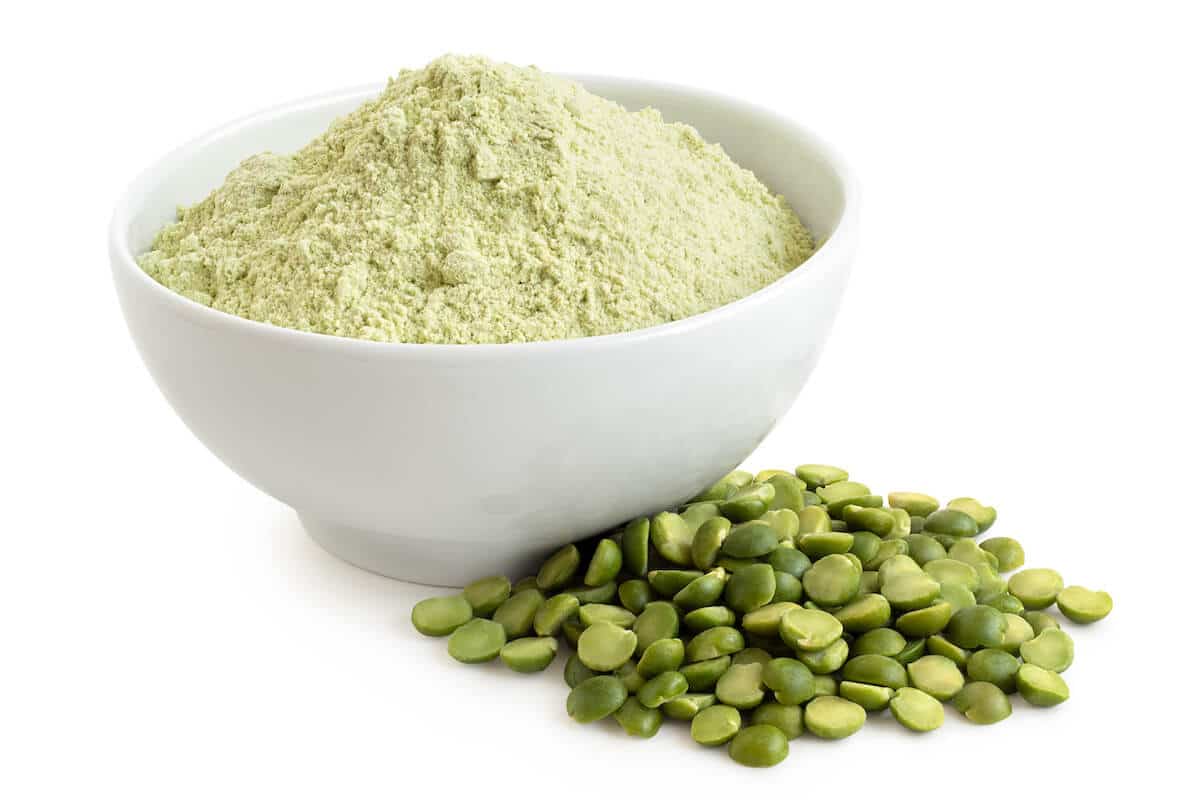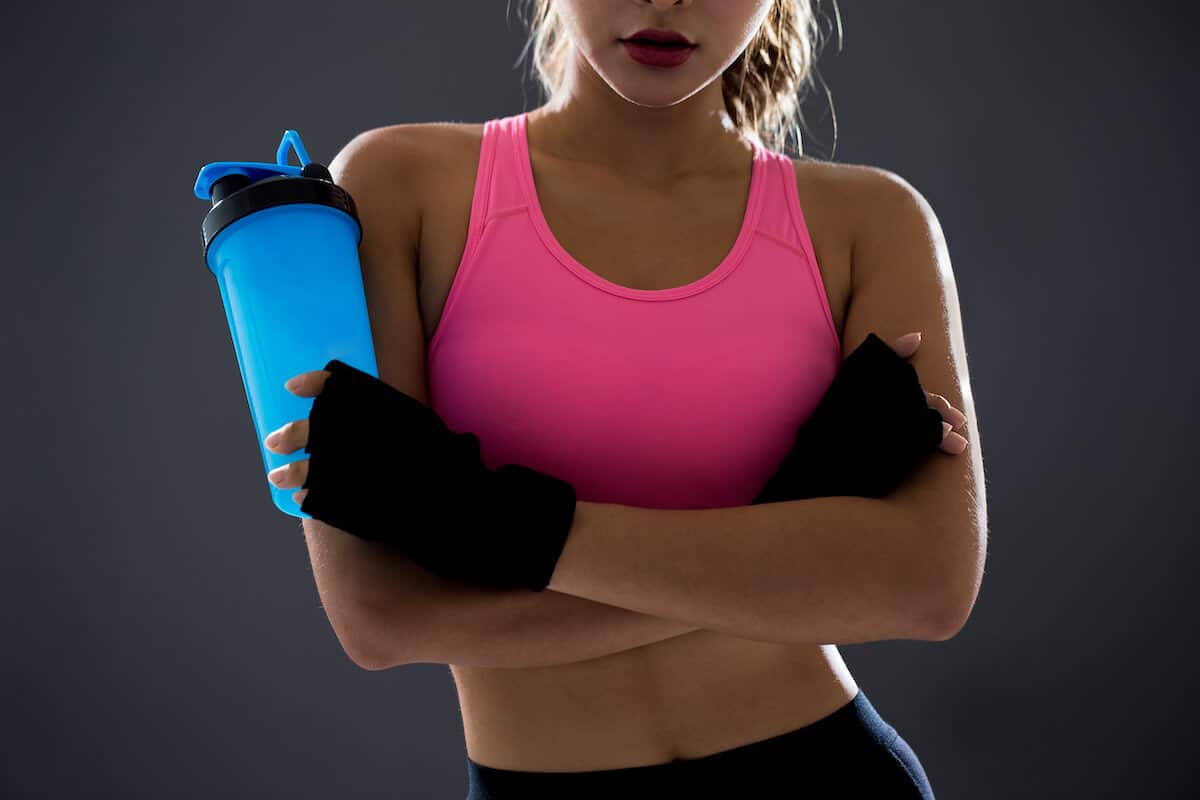
06 Dec Understanding the Pea Protein Amino Acid Profile
When it comes to protein supplements, casein and whey protein are some of the most popular options as they are high-quality protein sources. But what if you’re looking for a plant-based option? That’s where pea protein comes in.
Popular plant protein options include pea protein, soy protein, and brown rice protein. While any of these plant proteins could help support your health and get you closer to your fitness goals, pea protein is one of the most popular in today’s market.
Join us as we look at the pea protein amino acid profile and how it compares to whey protein. You’ll also find information about choosing the best pea protein powder for your supplementation needs.
Pea Protein Basics

Pea protein is currently considered one of the best plant protein options available. In fact, pea protein is considered on par with animal-derived protein powders such as whey protein. Furthermore, when flavored and sweetened, it tastes smooth and pleasant.
Pea protein is extracted from green and yellow peas, usually split peas, that have been dried and ground into a flour. This allows manufacturers to remove the bulk of the starch, fat, and fiber, leaving protein with a range of vitamins and minerals. The manufacturer can then dry and grind the pea protein again, yielding pea protein isolate.
Pea protein isolate is added to pea protein powder blends you can buy online or at the store, although it can also be purchased separately, either flavored or unflavored. The exact nutrient content of pea protein powder varies between brands, but for reference, here’s the nutrient profile of one scoop (37.5 grams) of Plantein from Kaged Muscle:
- 160 calories
- 26 grams of protein
- 5 grams of carbohydrates (3 grams net carbs)
- 2 grams of dietary fiber
- 4 grams fat
- 4 mg iron (20% daily value)
- 24 mg calcium (2% daily value)
- 118 mg potassium (2% daily value)
You’ll notice that pea protein boasts a high iron content, especially in comparison with other plant-based and vegan protein powders. However, plant-based iron is more difficult for the body to absorb than iron from animal sources. You can improve absorption by up to 67% by pairing it with vitamin C supplements or foods rich in vitamin C.
According to the Journal of the International Society of Sports Nutrition, pea protein and whey protein supplements produce similar muscle growth results in athletes. As such, you can use pea protein as a viable alternative to animal-based protein supplements like whey and casein.
Understanding Amino Acids

Before we examine the pea protein amino acid profile and compare it to whey protein, let’s look at amino acids. Proteins are made up of molecules known as amino acids. Amino acids and proteins are the building blocks for muscles, organs, and tissues in all living creatures. They allow your body to grow, repair tissues, break down food, and perform essential bodily functions.
When your body digests proteins and breaks them down, amino acids are what’s left. They’re classified in three groups: essential amino acids, nonessential amino acids, and conditional amino acids.
Essential Amino Acids
Essential amino acids are those that your body cannot produce. These amino acids are necessary for your health, and they must come from your diet. They include histidine, isoleucine, leucine, lysine, methionine, phenylalanine, threonine, tryptophan, and valine.
Leucine, isoleucine, and valine are what are known as branched-chain amino acids, or BCAAs. Some athletes add these BCAAs to their diet and other sources of protein to help with goals like building muscle mass.
When a food contains all nine essential amino acids, it makes up a “complete protein.” For example, animal protein, soy protein, and pea protein are complete proteins. This includes beef, chicken, fish, pork, and dairy, in addition to soybeans and peas. Other legumes, like lentils or black beans, are examples of proteins that are not considered complete.
Nonessential Amino Acids
Your body can produce the nonessential amino acids, which means that you don’t need to get them from your diet alone. The nonessential amino acids include alanine, arginine, asparagine, aspartic acid, cysteine, glutamic acid, glutamine, glycine, proline, serine, and tyrosine.
Conditional Amino Acids
Conditional amino acids are generally only essential when your body is going through stress or illness. They include arginine, cysteine, glutamine, tyrosine, glycine, ornithine, proline, and serine.
If you notice, this list includes seven of the nonessential amino acids, plus one more. The extra is ornithine. Ornithine is made in the body and is sometimes taken as an oral supplement to boost athletic performance.
Amino Acids In the Diet
While you don’t need to consume all of these amino acids in every meal, it’s important to get a balance of them throughout the day. However, understanding when to take amino acids and why can help athletes boost performance.
If you add a quality plant-based or vegan protein shake to your diet, you should be getting all of your essential amino acids together in at least one meal per day. A well-balanced diet with a range of vegetables, fruits, grains, nuts, and seeds, paired with a multivitamin, should do the rest.
It’s best to consult your healthcare professional or a nutritional specialist before changing your diet. A professional can help you determine the best protein intake and amino acid profile, especially if you’re following a plant-based diet.
Pea Protein Amino Acid Profile
Is pea protein a complete source of protein? Yes. It contains all nine essential amino acids required to make a complete protein. In conjunction with a balanced diet, pea protein can provide sufficient amounts of protein and essential amino acids to support your body.
Whey Protein vs. Pea Protein
Both whey protein and pea protein have all nine essential amino acids. The amounts of each amino acid are relatively comparable between the two, but pea protein is low in methionine, like all legumes.
Pea protein is high in arginine, a nonessential amino acid that helps with muscle growth. It’s also a great source of BCAAs, which promote muscle growth and help you meet strength goals.
Since rice protein is high in methionine, it’s often added to pea protein powder for a more balanced amino acid profile. This varies by brand, however, so look for a brand that gives you an amino acid profile of their product to verify the methionine content is balanced.
Choosing Quality Pea Protein Powder
Pea protein is comparable in performance and amino acid content to whey protein, making it a viable vegan protein powder for those following a plant-based diet. This is especially true when the content of methionine is balanced with rice protein. Your first step will be to look for a pea protein powder with boosted levels of methionine.
Next, you’ll want to think about your individual dietary needs and preferences. For example, most pea protein powders have a low cholesterol content and are gluten-free. However, some pea protein powders contain allergens, such as nuts and soy, so always read the label carefully.
If you’re counting carbs, look for a low-carb option (like Plantein), and don’t forget to subtract the dietary fiber from the total carbohydrate content. This reveals the “net carbs,” which is what you’ll be counting on a low-carb diet.
Last but certainly not least, look for high-quality, Ingredient Optimized products, including ioPea. Ingredient optimization increases the bioavailability of the protein in the supplement, making it easier for your body to absorb and thus allowing for faster muscle protein synthesis, which helps with recovery.
Focus on Nutrition
If you’re plant-based or simply trying to eat fewer animal products, pea protein powder can help you achieve your fitness and wellness goals. The pea protein amino acid profile contains complete protein, which is what’s necessary to support your body. It’s also comparable to animal proteins like casein and whey protein supplements.
Protein supplementation can support your health, no matter how your activity level, age, or fitness goals. This is true whether you’re doing something like resistance training four days per week or you’re still working towards a regular exercise routine.
Remember to look for high-quality products, such as ioPea and Plantein, which use Ingredient Optimized pea protein. These protein supplements will provide enhanced bioavailability and make sure you’re getting the nutrients you paid for in every scoop.


